What are the easiest annual flowers to grow in Massachusetts?
Finding the easiest annual flowers to grow in Massachusetts was not as easy as I thought. Some require extensive care, others are prone to pests, and lots are just not simple & quick enough to grow.
That’s why I created a list of the 10 Easiest Annual Flowers to Grow in Massachusetts!
This ultimate guide will give you the easiest annual flowers to grow in Massachusetts, why you should grow them, and even how to grow them.
Read THIS Before Growing Flowers in Massachusetts
Knowing what hardiness zone Massachusetts is in is critical to understanding the easiest flowers that can be grown.
It can be the difference between your flower garden thriving and providing beautiful blooms or producing nothing.
Massachusetts is mostly considered Hardiness Zone 5, while some of the lower-level regions are Hardiness Zone 6.
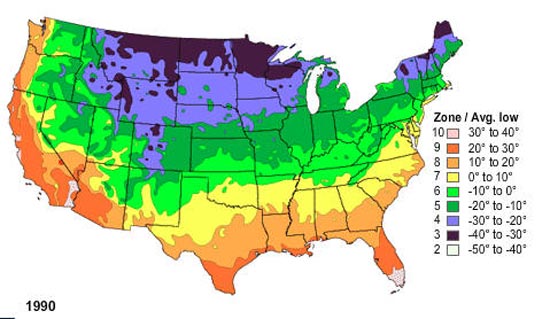
10 Easiest Flowers to Grow in Massachusetts
#1. Petunias
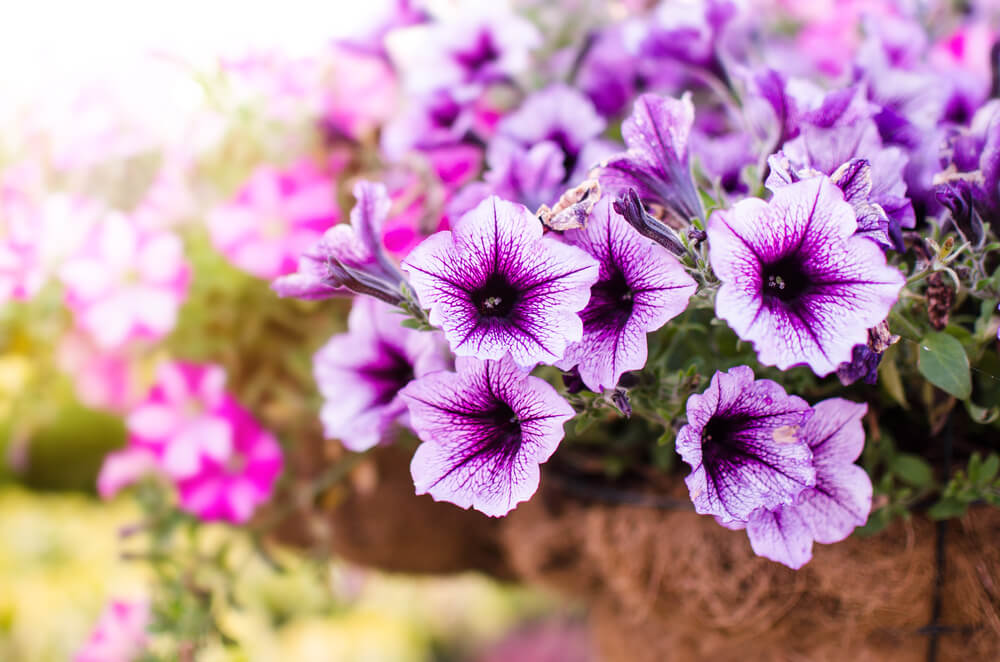
Popular Varieties: Grandiflora, Multiflora, Milliflora, Wave
Why Grow Petunias in Massachusetts?
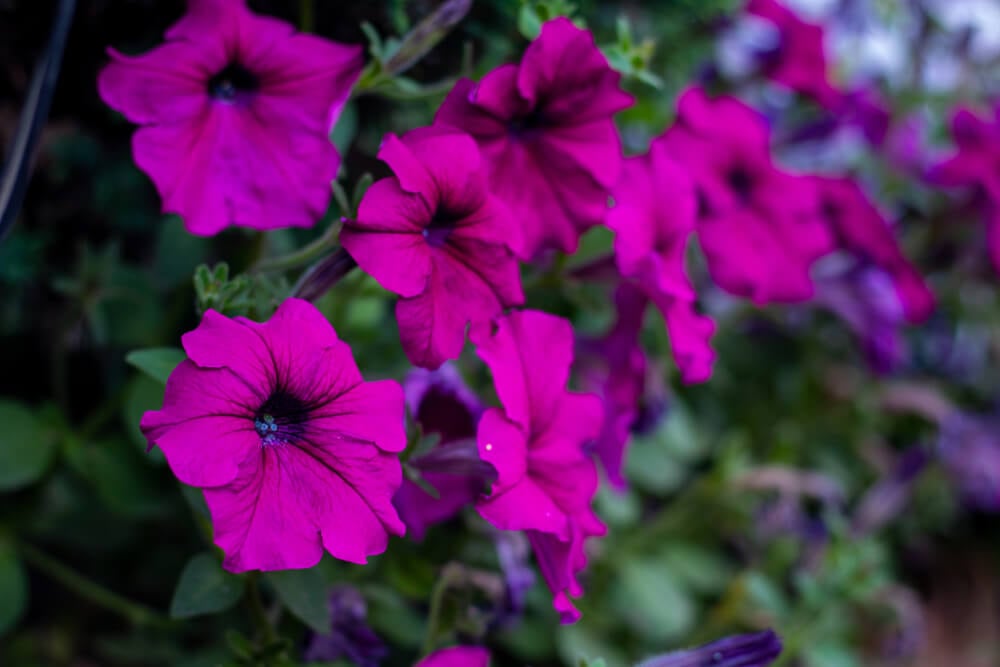
Thrives in Heat:
- Petunias are a great annual flower that can bloom until early November but really thrives in heat. You’ll notice the hotter it is the more blooms there are!
Low-Maintenance:
- Flowers typically are not low maintenance. But wave petunias are one of the easiest flowers to grow. They require no deadheading for more blooms.
Perfect for ANY Garden:
- Some flowers require all sun or all shade to grow. Not Petunias. They can grow anywhere in your garden, in hanging baskets, window boxes, and anywhere else you can think of.
THESE Could Harm Your Petunias
Garden Pests:
- Like many other annual flowers, petunias can become a victim of garden pests like chipmunks and rabbits who eat the plants before flowers bloom.
Related: 20 Ways to Deter Rabbits from Your Garden
Related: 20 Ways to Prevent Chipmunks in Your Garden
Frost:
- If the weather drops below 35 degrees Fahrenheit constantly then expect the flowers on your petunias to wilt and die. Soon after your flower plant itself will die.
Additional Resources
Learn More Petunias HERE
#2. Alyssum
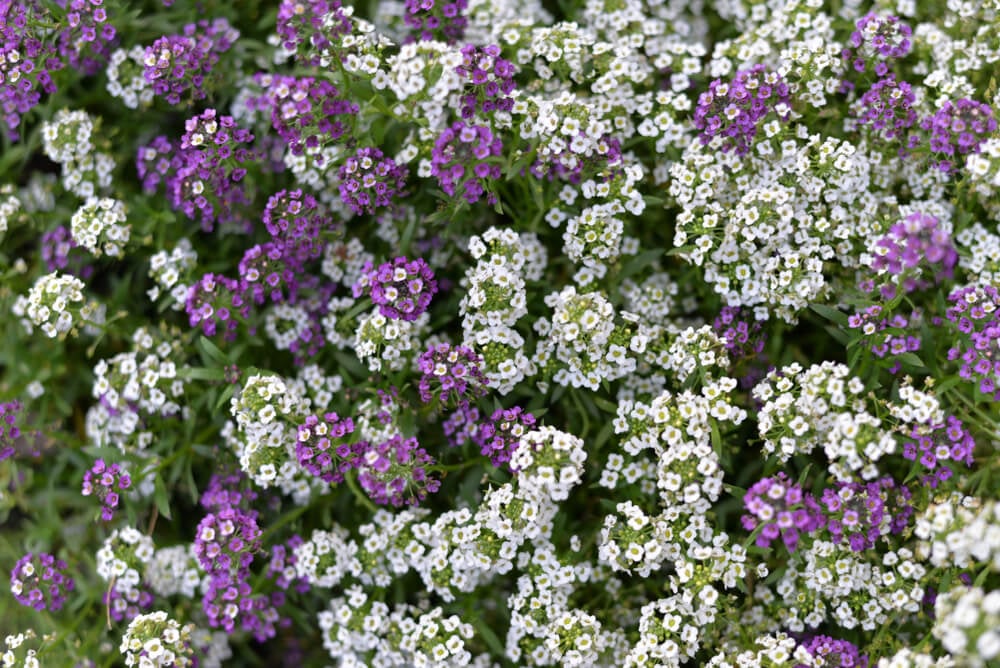
Popular Varieties: Sweet, Royal Carpet, Easter Bonet, Snow Crystals
Why Grow Alyssum in Massachusetts?
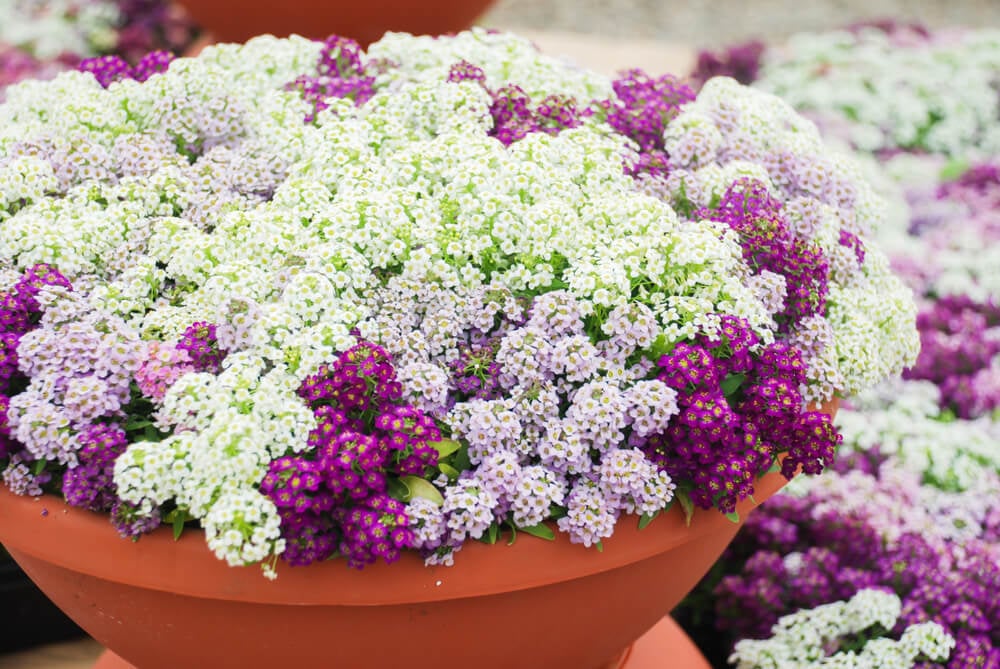
Ground Cover:
- Alyssum is one of the few flowers on this list that are great for ground cover. This flower spreads without any help from the gardener & have beautiful small blooms that add color to any landscape
Cold-Hardy:
- Alyssum is perfect for the cool fall evenings and cold winter days. Actually, this is when Alyssum will bloom and add beautiful colors well into the first few touches of frost of the year.
Pest-Resistant
- It seems like deer and rabbits will eat almost any flower or plant in your garden. Deter them from your flower garden with the peppery smell of Alyssum.
THESE Could Harm Your Alyssum
Humans
- While your typical garden pests will stay away from Alyssum the biggest danger to your flower is humans. Because it is ground cover it is easy for landscapers to mow over it, kids to destroy it, and pets to dig it up.
Extreme Heat
- Don’t plant your Alyssum in heat. Because it thrives in cold, planting Alyssum in extreme heat will stunt and sometimes kill your plant.
Additional Resources
Learn More About Alyssum HERE
#3. Dahlia
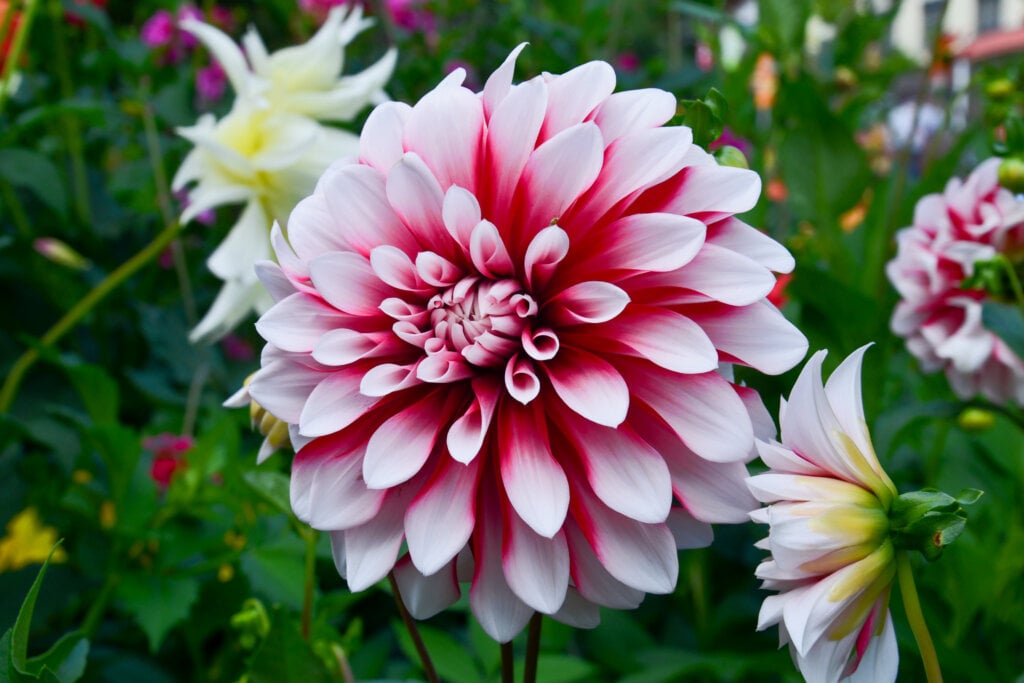
Popular Varieties: Pinnata, Bishop, Imperialis
Why Grow Dahlias in Massachusetts?
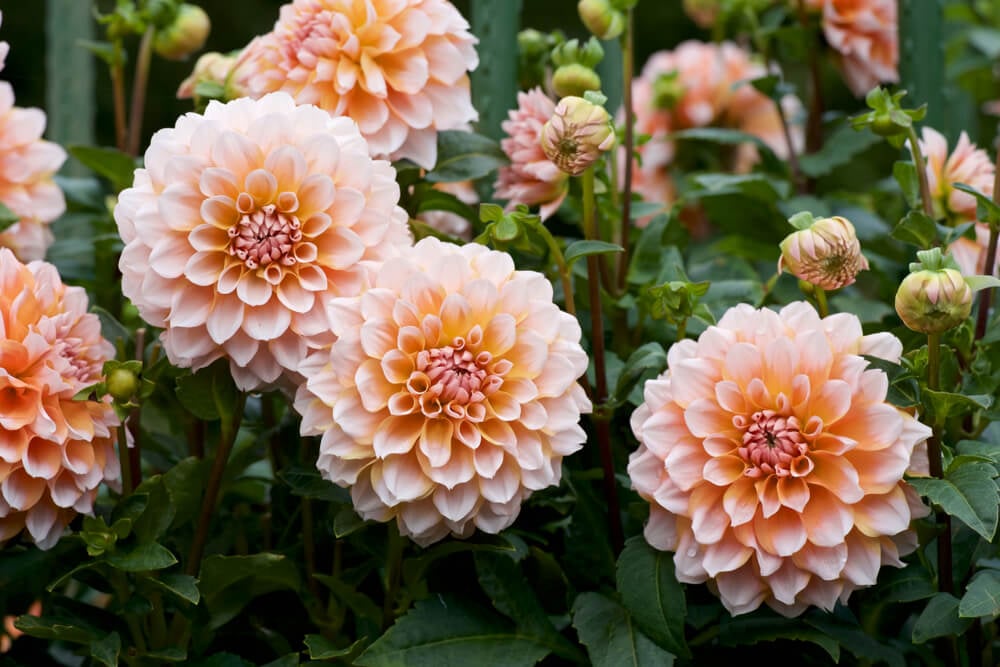
Low Maintenance:
- Dahlia is the easiest flower to grow. You do not need to fertilize it, barely need to water it, it can be planted in any soil, and you never have to worry about it!
Perfect in Containers:
- The best spot to plant dahlias is in gardening containers. This is because you can grow them anywhere, such as in your house, on your patio, and even transplant into a window box.
THESE Could Harm Your Dahlia
Garden Pests:
- Like several other flowers on this list, Dahlias are prone to garden pests. Unlike other flowers garden pests like squirrels, deer, and rabbits will eat bulbs, flowers, and even the plant itself.
Additional Resources
Learn More Dahlias HERE
#4. Zinnia
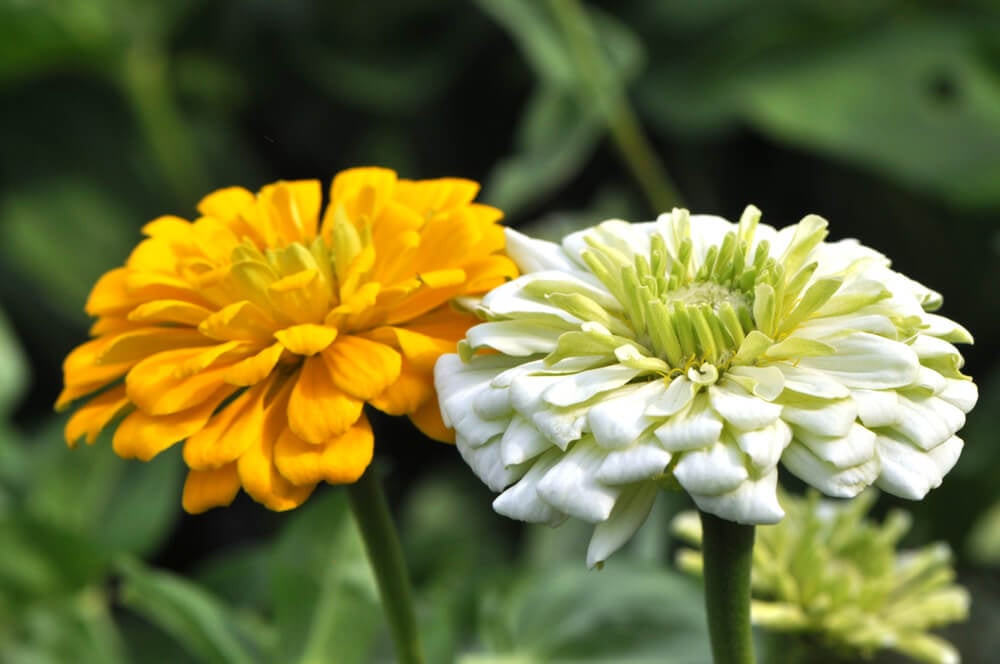
Popular Varieties: Common, Desert, Angustifolia
Why Grow Zinnia in Massachusetts?
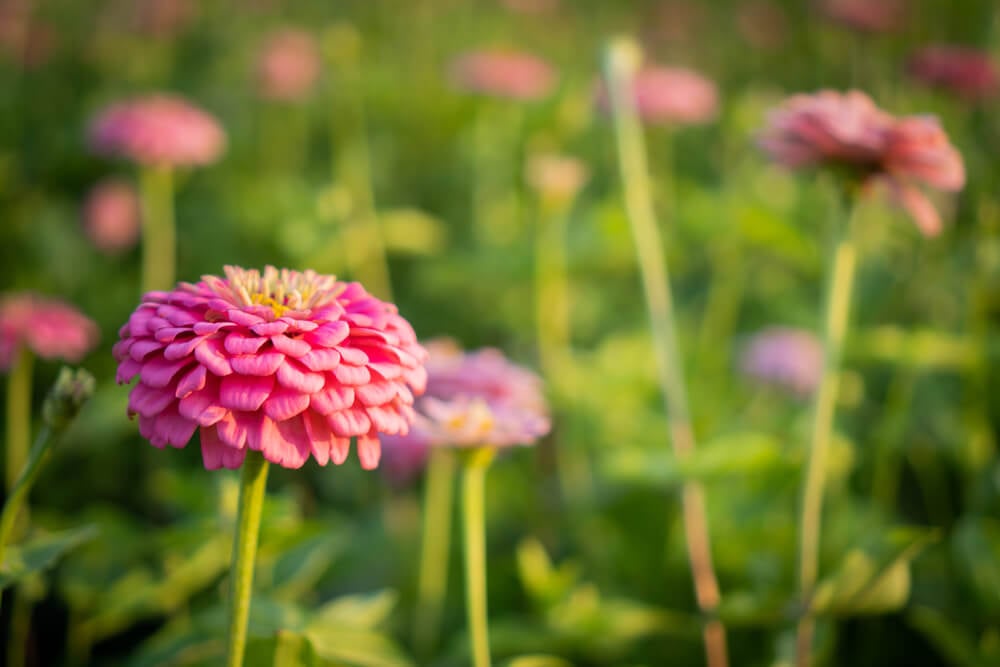
Thrives in the heat:
- While you can plant your Zinnias in spring for a headstart, Zinnias is one of the few spring flowers that can be planted in early summer and still continuously bloom and grow.
Easy to Grow from Seed:
- Zinnias is the easiest and most popular type of flower to grow from seed. It requires less sunlight, water, and care to germinate compared to other flowers during the winter.
Perfect in All Types of Garden:
- Some flowers only do well in the ground. Not Zinnias. You can grow them in containers, window boxes, raised garden beds, and even in poor soil.
THESE Could Harm Your Zinnias
Diseases:
- Zinnias are beautiful flowers, but if the soil gets too wet fungus can cause root rot. Not only this, but it can affect the colors and how long blooms last.
Additional Resources
Learn More About Zinnias HERE
#5. Pansy
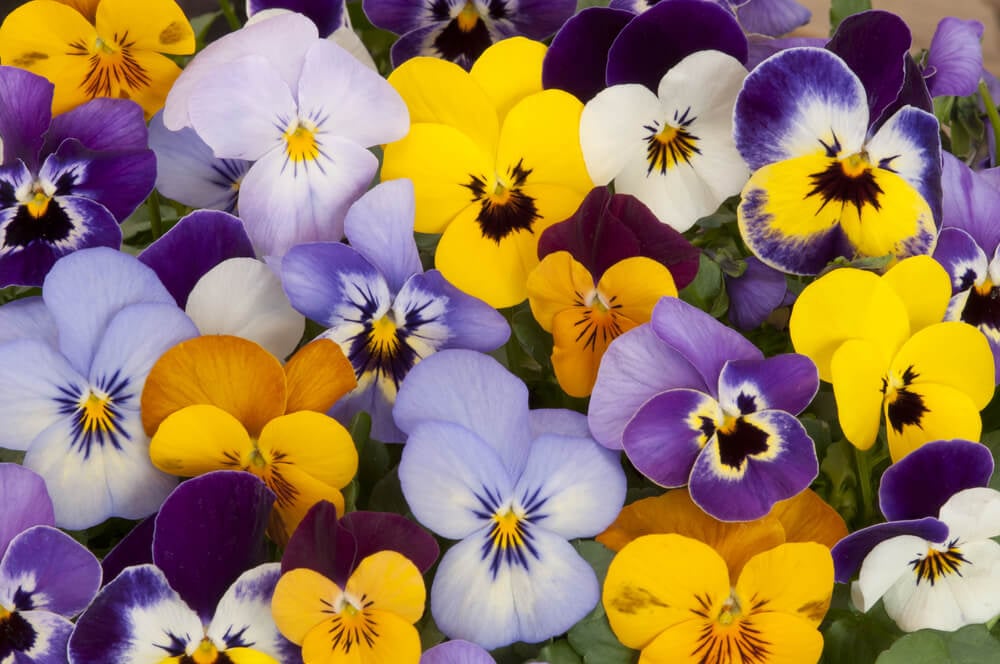
Popular Varieties: Alba Minor, Black Accord, Cool Wave, Chalon Supreme
Why Grow Pansy in Massachusetts?
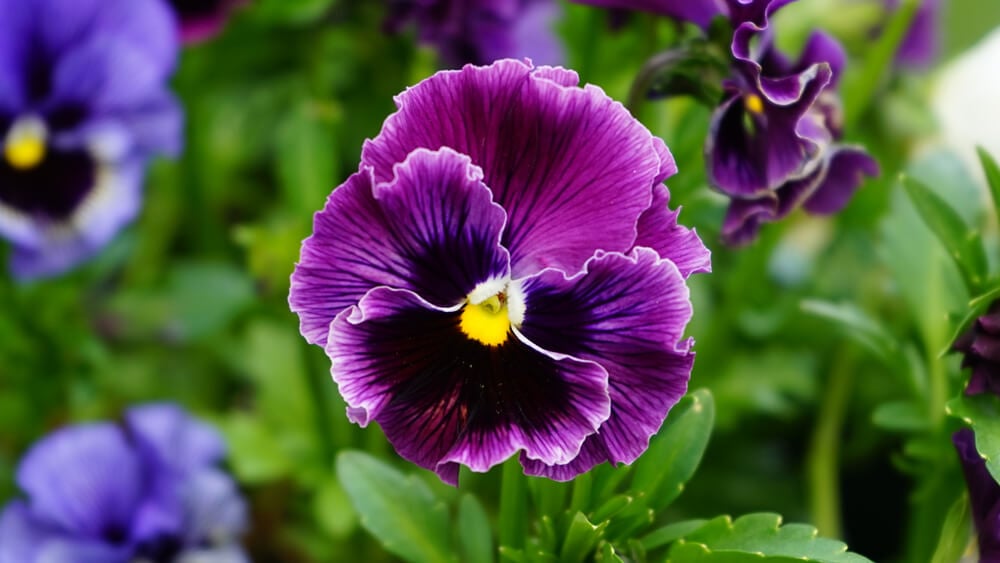
Blooms All Year:
- Pansies are one of the few flowers that can bloom almost all year. On average, Pansies bloom for 8 months without any need of deadheading or care.
Perfect for All Gardens:
- Some flowers only do well in the ground. Not Pansies. You can grow them in containers, window boxes, raised garden beds, and even in poor soil.
Ground Cover:
- Pansies are one of the few flowers that can function as low-maintenance ground cover. The difference between pansies and other ground cover plants is that it has beautiful blooms.
THESE Could Harm Your Pansies
Birds, Squirrels, Rabbits, & Chipmunks:
- Typically, garden pests will eat other flowers and plants before pansies. But in the winter deer and rabbits will quickly eat pansy flowers or plants since they are one of the few plants still growing.
Humans:
- While typical garden pests will stay away from Pansies in the summer, the biggest danger to your flower is humans. Because it is ground cover it is easy for landscapers to mow it, kids to destroy it, and pets to dig it up.
Additional Resources
Learn More About Pansies HERE
#6. Marigolds
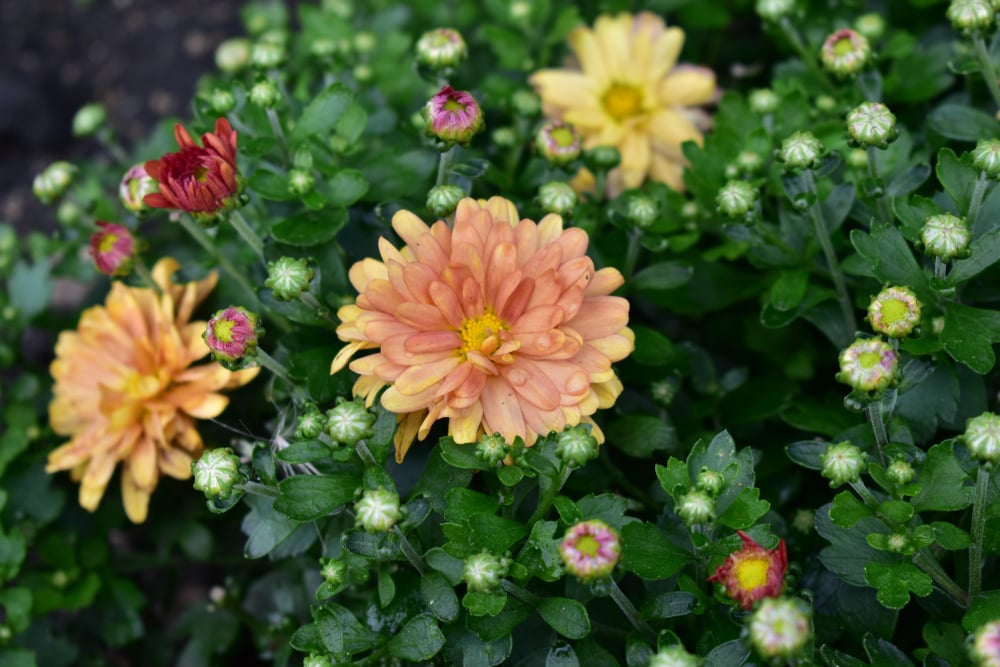
Popular Varieties: French, Signet, African, Triploid
Why Grow Marigolds in Massachusetts?
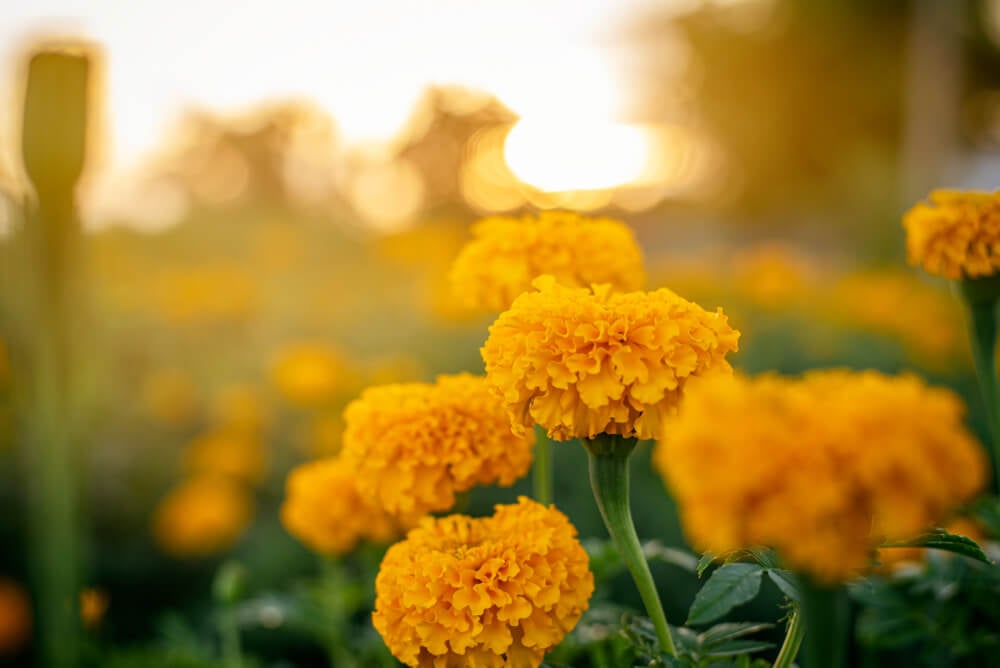
Thrives in the heat & cold:
- If you have early spring frosts or late fall frost then Marigolds is the perfect flower to plant for an extended flower garden season.
Continous Blooms:
- Marigolds are another flower that has continuous blooms for 6-8 months of the year. All you have to do is deadhead them.
Attracts Pollinators:
- Attracting Pollinators are hard. But it doesn’t have to be. Just plant your Marigold flowers and watch bees, butterflies, and birds come to it.
Related: 50 USEFUL Plants that Attract Bees
THESE Could Harm Your Marigolds
Spider Mites:
- Marigolds are one of the more insect-resistant flowers. But its weakness is spider mites. Spider Mites are known to quickly destroy marigolds if not remedied early.
Related: 10 Best Insecticides for Flowers
Droughts:
- Drought is one of the biggest threats to growing marigolds. Marigold plants need a consistent amount of water to thrive and produce blooms. Without water, expect little to no blooms.
Additional Resources
Learn More About Marigolds HERE
#7. Begonia
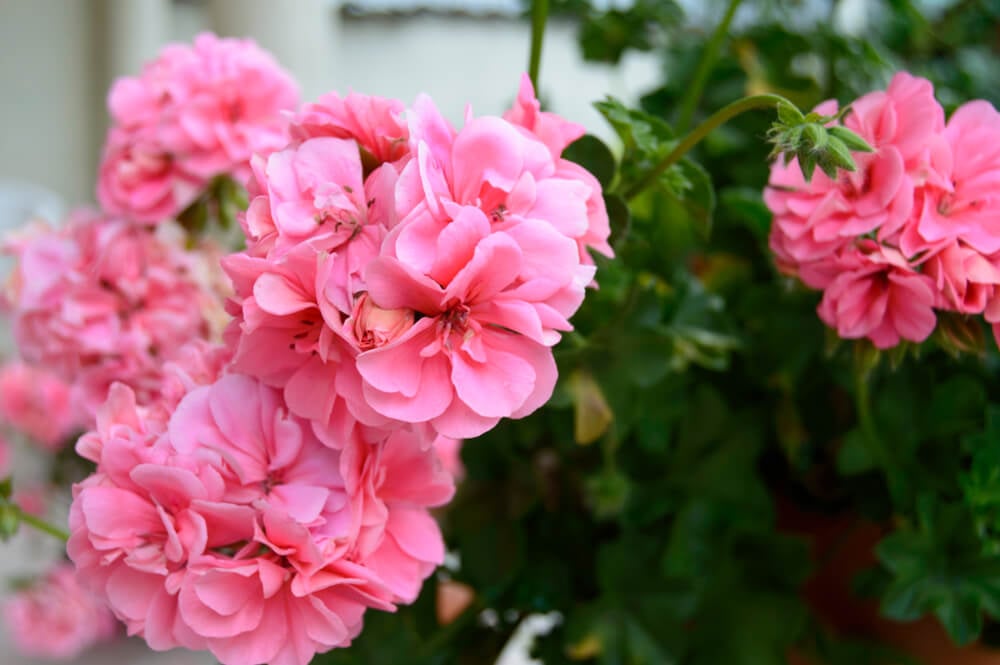
Popular Varieties: Fibrous, Tuberous, Canes, Rhizomatous
Why Grow Begonias in Massachusetts?
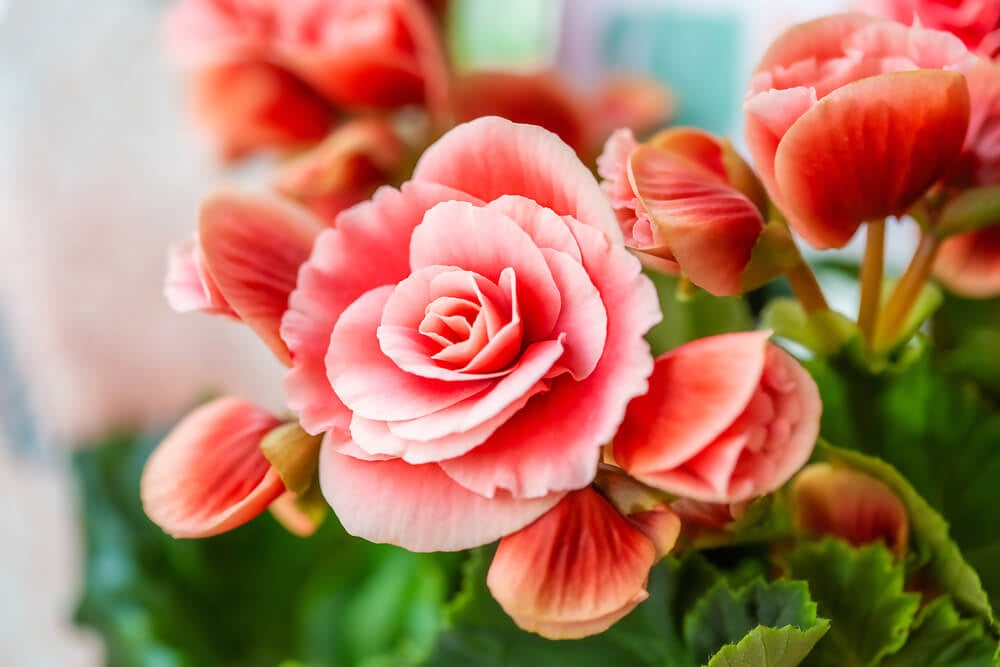
Low-Maintenance:
- These low-maintenance flowers require very little care. You don’t have to prune it or deadhead it to have more flowers bloom. Not only this, but it thrives in cold and hot!
Flexible Growth:
- This is the one flower that you can dig up the tubular in winter and move indoors. You can also move it during the year to different spots in your yard, garden containers, or even window boxes.
THESE Could Harm Your Begonias
Garden Pests
- Begonias are very prone to garden pests. Deer, rabbits, and squirrels, and chipmunks all like this type of flower. Even with deer repellant spray, garden pests enjoy eating begonias.
Insects
- Begonias are also very prone to insect attacks. If you do not properly spray your begonias consistently you should expect some type of insect to eat the leaves of your flowers.
Disease
- Begonias also can quickly become diseased by fungus and other types of common flower issues.
Additional Resources
Learn More About Begonias HERE
#8. Celosia
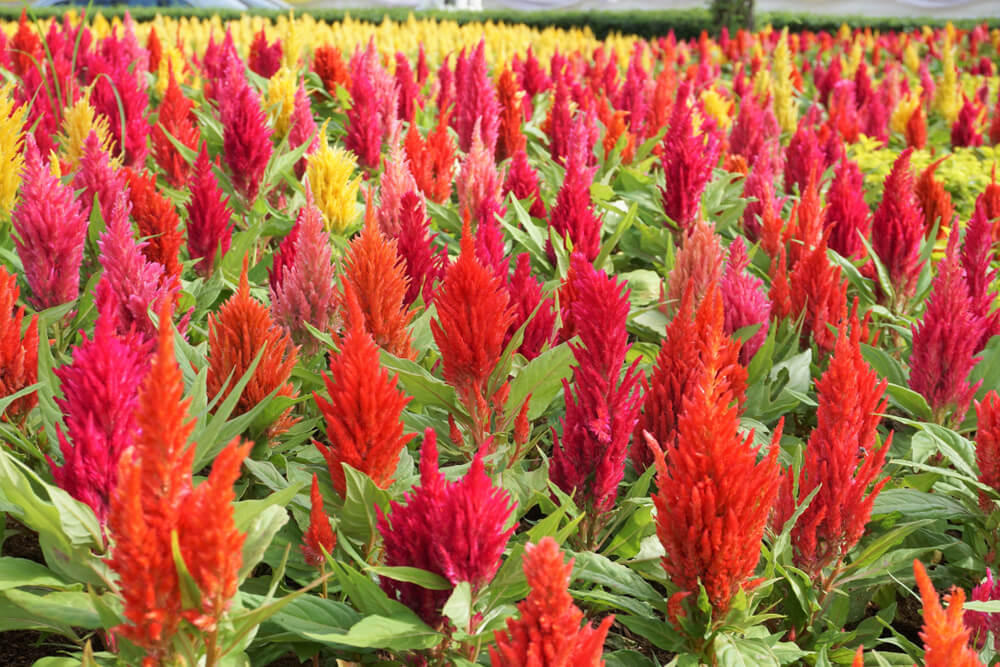
Popular Varieties: Crested, Plumed, Spike
Why Grow Celosia in Massachusetts?
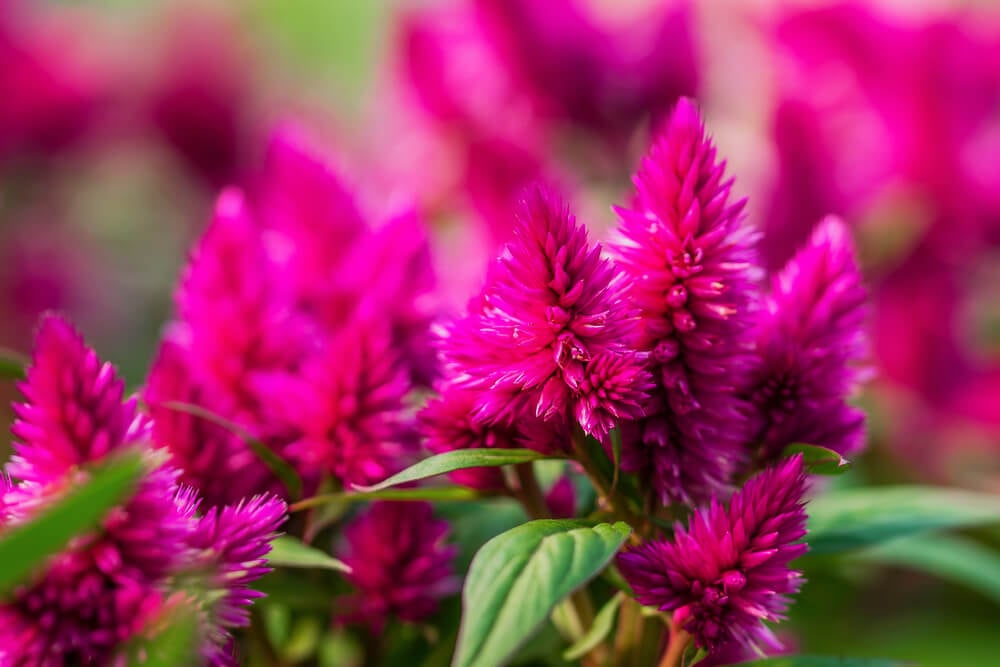
Durable:
- When you think of flowers you rarely think of durability. But Celosias are incredibly durable. It can withstand heat, cold, insects, pests, and even diseases.
Great for Small Spaces:
- Celosia is the only flower on this list that grows vertically. This means it is perfect for small spaces, urban gardeners, or in between other plants as a cross-pollinator.
THESE Could Harm Your Celosia
Mites:
- Celosia is incredibly hardy and durable. Its only threat is mites. Mites can quickly overtake your flowers and by the time you realize there is an infestation, it is too late.
Wetness:
- Most flowers, including Celosia tolerate rain, heat, cold, shade, and droughts. But too much rain can cause root rot and other diseases that will kill your celosia.
Additional Resources
Learn More About Celosia HERE
#9. Violas
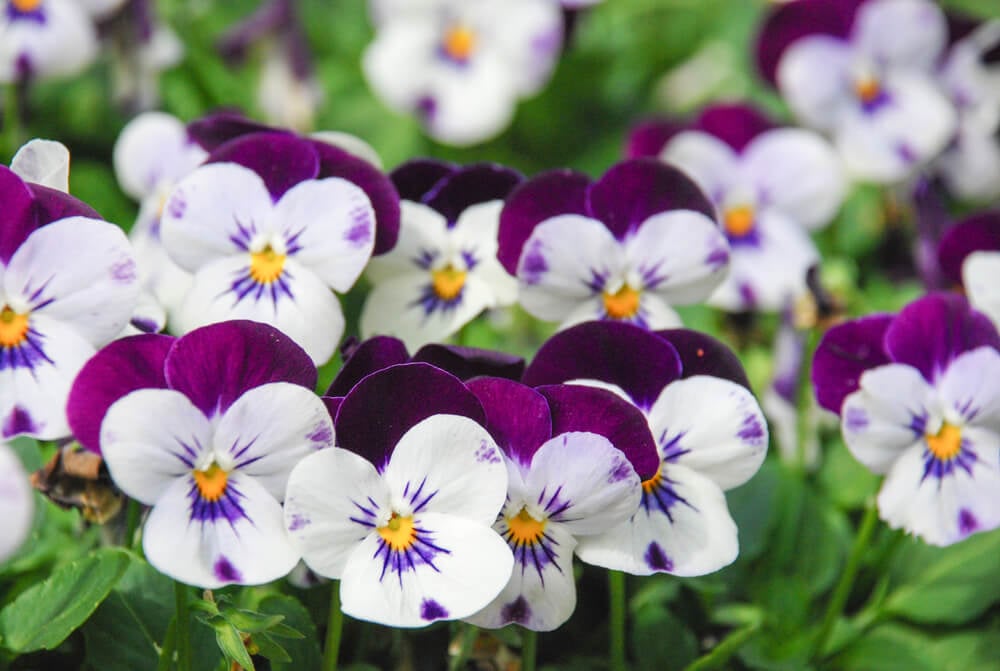
Popular Varieties: Renifolia, Riviniana, Rotundifolia
Why Grow Violas in Massachusetts?
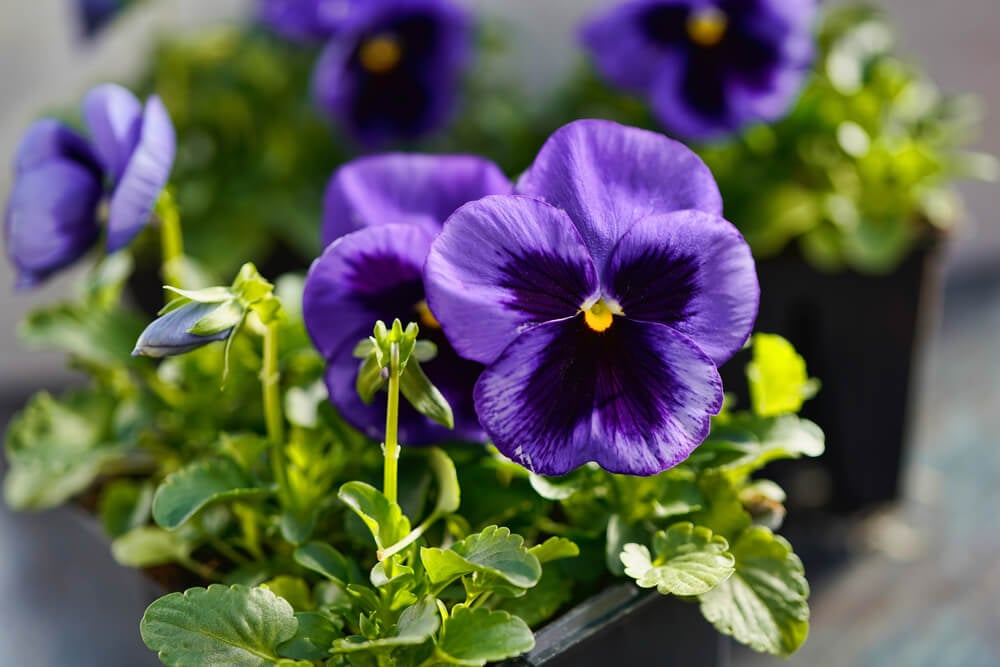
Thrives in Droughts:
- Violas, like pansies do extremely well in droughts and although flowers may not bloom as beautifully, they will still thrive.
Perfect for All Gardens
- Violas are the perfect flower that can be planted anywhere in your yard, garden, and even inside your house. While they thrive in gardens they also do well in compacted soil or in mulched areas of your yard.
Ground Cover:
- Violas are one of the few flowers that can function as low-maintenance ground cover. The difference between pansies and other ground cover plants is that it has beautiful blooms.
THESE Could Harm Your Garlic
Garden Pests:
- Rabbits, Deer, & even birds can dig up and eat your pansies. Most people think animals and pests will not eat pests, but that is a common myth. Protect your garlic with netting or rodent spray.
Additional Resources
Learn More About Violas HERE
#10. Impatiens
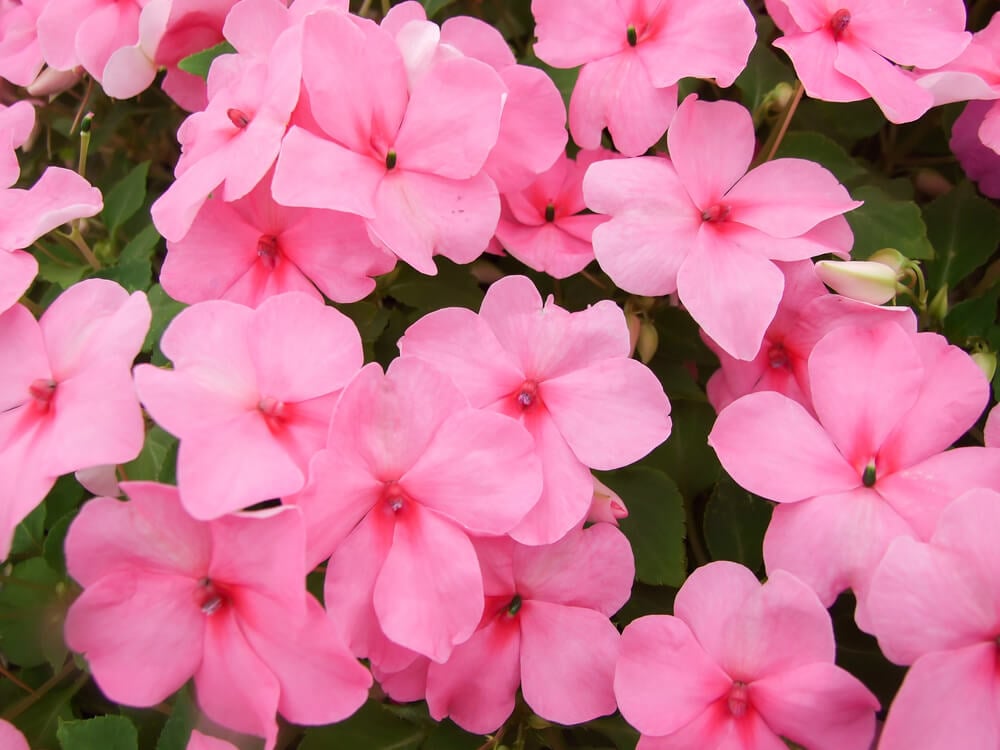
Popular Varieties: Single, Double
Why Grow Impatiens in Massachusetts?
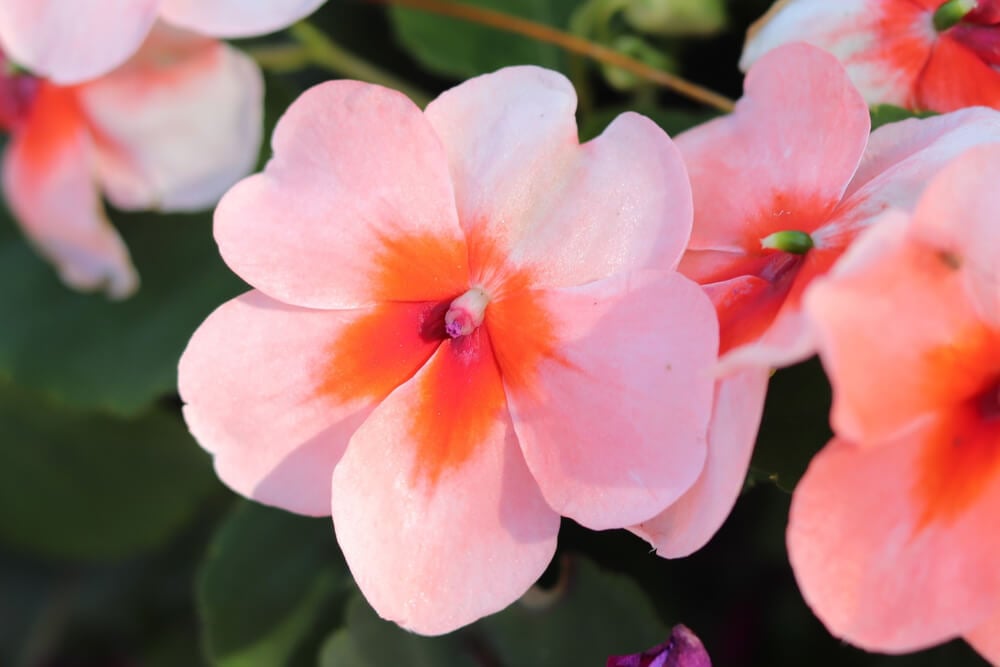
Perfect for All Gardens:
- Impatiens flowers are the perfect flower that can be planted anywhere in your yard, garden, and even inside your house.
Numerous Varieties:
- There are almost 1,000 variants of Impatiens flowers. They come in many sizes and bloom beautiful colors of pink, red, white, yellow, etc. They also have soft petals making them a favorite of beginner flower gardeners.
THESE Could Harm Your Impatiens
Disease:
Impatiens flowers are prone to more diseases than most annual flowers that you grow in Massachusetts. When first planted, this flower can quickly die from fungus and other diseases because of too much rain.
Additional Resources
Learn How to Grow Impatiens HERE
Common Growing Factors of Massachusetts’s Easiest Flowers
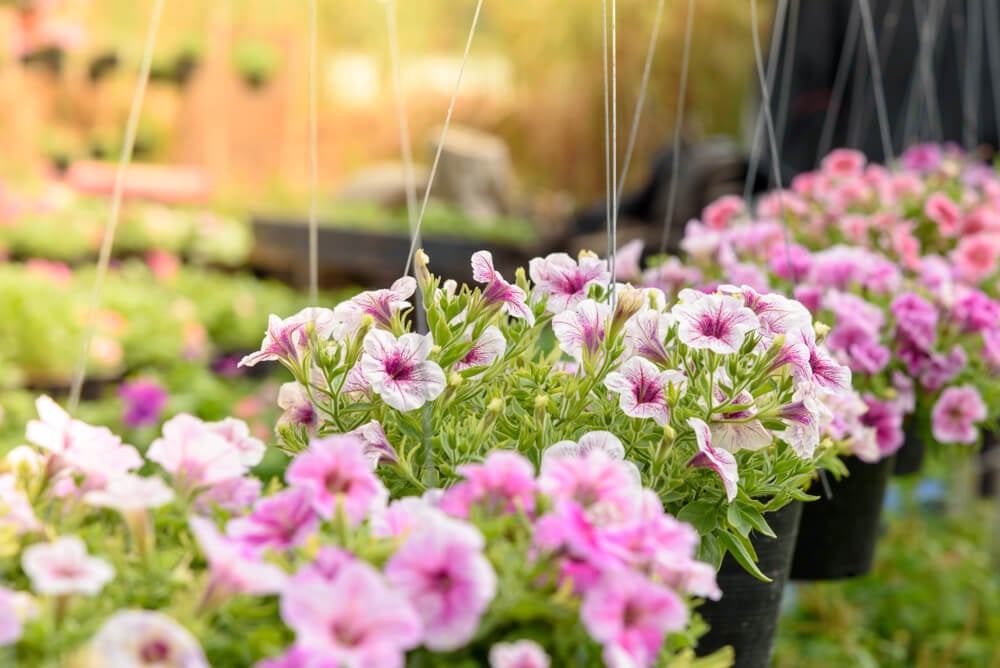
As a reminder, the below factors are common for the Easiest Flowers to Grow in Massachusetts:
- Thrives in Heat & Drought
- Thrives in Cold
- Can Grow anywhere in your yard
- Hardy against Pests & Insects
- Requires Little Care & Water
- Attracts Pollinators
- Ground Covers
- Great for Small Garden Space
- Durable & Versatile